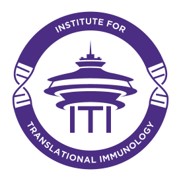John Ray, Ph.D.
Assistant Member
Systems Immunology, Benaroya Research Institute
| Autoimmune diseases have complex genetic etiologies. If we had a better understanding of the genetic drivers of these diseases, we would be better able to diagnose, treat, and prevent disease. Genome-wide association studies (GWAS) have led to the discovery of hundreds of loci associated with autoimmune diseases across the genome. However, within each associated locus, identifying the actual disease-causal genetic variants is difficult because the vast majority are in non-coding regions. Thus, my laboratory uses high-throughput perturbational approaches in primary immune cells from humans and mice to dissect the functions of non-coding genetic variants on immune cell function in health and disease. As part of the ITI, I would like to advise ITI fellows and participate in multidisciplinary research to create and employ new technologies to explore how the non-coding genome regulates immune cell expression and function in health and disease in collaboration with other UW and Biotech PIs in the ITI. This could provide fellows with experience in translational immunology through developing new approaches to understanding immune cells and their function/dysfunction as well as defining the mechanisms of autoimmune disease risk and defining potentially therapeutic targets.
Mentor type:
|

